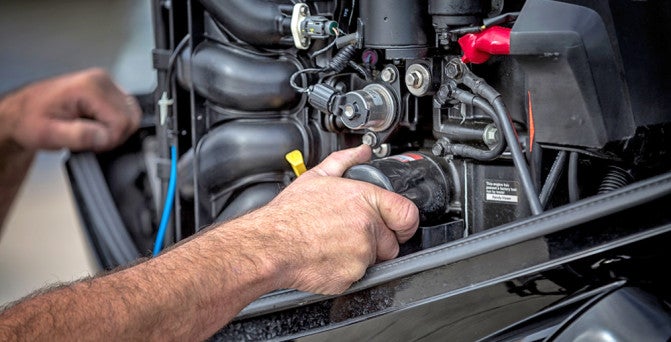
Boating well known for being one of the most enjoyable ways to spend a day with family and friends. But when compared against the cost of other activities, such as a day at a theme park or a sporting event, it’s a tremendous value as well. That’s especially true if you know how to maximize fuel economy so you’re not burning any more gas than you need to.
Reducing your fuel expense is easy if you follow a few simple tips. Here are five sure-fire ways to reduce fuel consumption and cut your operating costs.
Slow Down
The best way to reduce fuel consumption is to ease up on that throttle just a little bit. Not many boaters realize it, but by simply reducing the speed of your boat from full throttle to maybe two-thirds, you can cut fuel consumption by as much as 50 percent!
In a recent test of a Cobalt A40 cruiser with twin Volvo Penta diesels, Boating magazine found that powering back by just 600 rpm almost cut fuel consumption in half! At full throttle, the big Cobalt’s engines turned at 3,600 rpm and gobbled up 41 gallons of fuel per hour, while pushing the big boat to a top speed of 47 mph. But throttling back to 3,000 rpm and near 40 mph cut fuel consumption down to 26 gallons per hour – a savings of 45 percent.
Over a full season of boating, throttling back just a little can save you an awful lot of money.
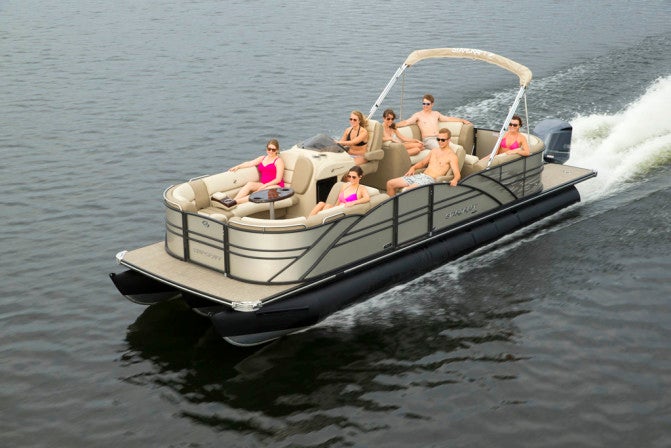
Distributing passengers and gear evenly inside the boat helps it get up on plane more easily, reducing fuel consumption.
Balance The Load
Balancing the weight inside your boat is another easy way to reduce your fuel costs. Always try to distribute passengers and gear so that your boat can easily get up on plane and not plow in the water.
Once it is planed out, trim your motor up gradually so you have as little of the boat in contact with the water as possible. By reducing drag this way, you’ll shave even more dollars off your fuel bill.
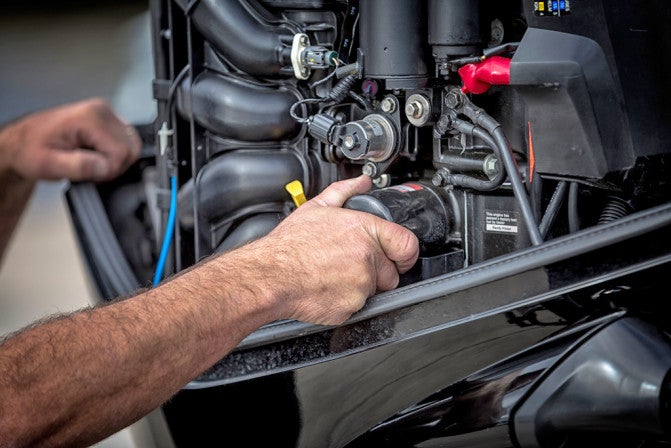
Keeping up on oil changes and scheduled maintenance will ensure your engine runs at peak efficiency for optimal fuel economy.
Keep Up On Maintenance
Keeping your motor properly tuned is another good way to maximize fuel economy. Neglecting to change out engine spark plugs each year might save you a few dollars in the short term, but you’ll pay for it in the long run through higher fuel consumption. You’ll also shorten the life of your engine.
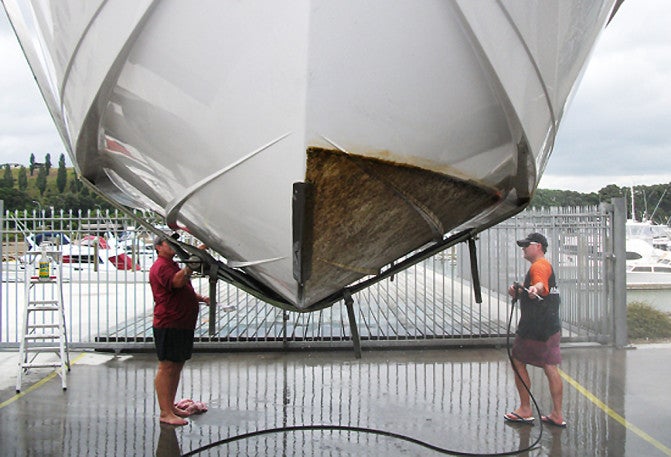
A clean hull requires less energy to push through the water, and uses less fuel. Photo credit: Boat Brite
Keep Your Boat Clean
Even the simple act of keeping the bottom of your boat free of algae and marine growth can pay big dividends at the gas pump. If you trailer your boat, take the time to give it a periodic cleaning to remove aquatic growth. An annual waxing can further help deter algae from attaching itself, and result in improved fuel economy.
If your boat is permanently moored at the local marina or at the cottage, make sure you invest a day each spring before it goes in the water to thoroughly clean the hull with a soft bristle brush and a good hull cleanser like Boat Brite. Then, give it a good waxing to keep growth from adhering through the season. The smoother your boat hull, the less force required to push it through the water and the less fuel you’ll need to burn.
Update Your Engine
If you have an older motor, you might consider replacing it with a newer one. Modern outboards are incredibly fuel-efficient – to the point that if you use your boat a lot, you’ll notice a huge savings in your annual fuel bill. It might even be enough to offset the cost of buying a new motor.
High tech engineering makes modern outboards so fuel-efficient that it can really pay to upgrade to a newer engine – both figuratively and literally. Apart from offering significantly better fuel economy, new engines require far less maintenance than older outboards so, and have much less environmental impact. They’re quieter to operate, there’s no smoke in the cockpit, and they’re remarkable reliable besides.
Even older boats with inboards and stern drives can be adapted to accept modern outboards, by simply installing a transom bracket. If you love your old boat but cringe every time you gas it up, new engines can make a tremendous difference.
Saving a few bucks here and there really adds up. By thinking about what you can do to reduce your boat’s fuel consumption, you can probably save enough each year for a new rod and reel, a brand-new GPS, or even a trip south in the winter months. Now there’s incentive!
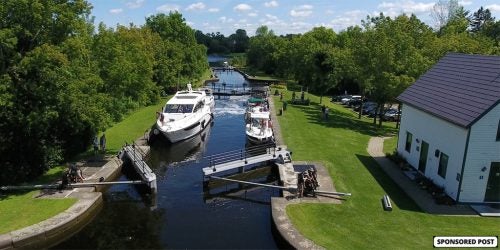
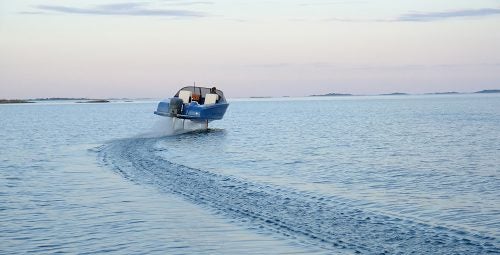

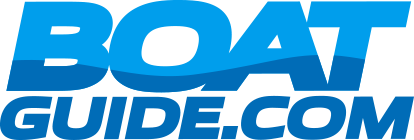

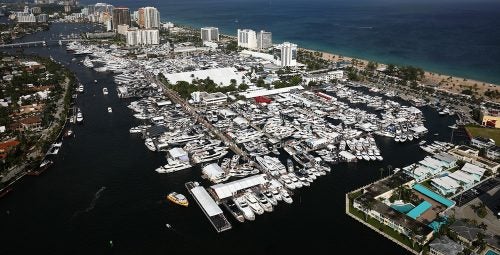 Fort Lauderdale International Boat Show Preview
Fort Lauderdale International Boat Show Preview 10 Best New Boat Accessories at IBEX 2021
10 Best New Boat Accessories at IBEX 2021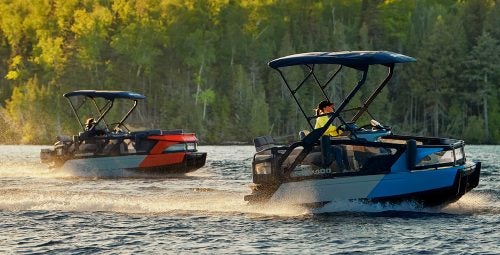 2022 Sea-Doo Switch Pontoon Boat Lineup Unveiled
2022 Sea-Doo Switch Pontoon Boat Lineup Unveiled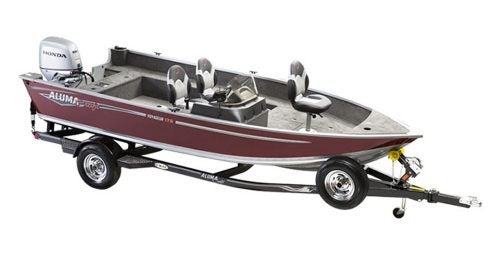 BRP Enters Fishing Boat Market with Purchase of Alumacraft Boat
BRP Enters Fishing Boat Market with Purchase of Alumacraft Boat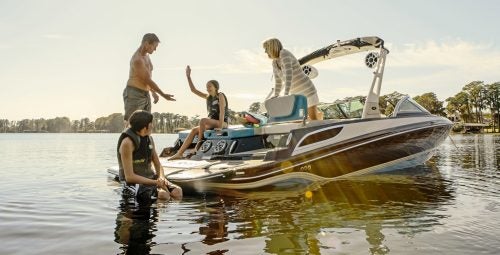 Volvo Commits To Electric Power By 2021
Volvo Commits To Electric Power By 2021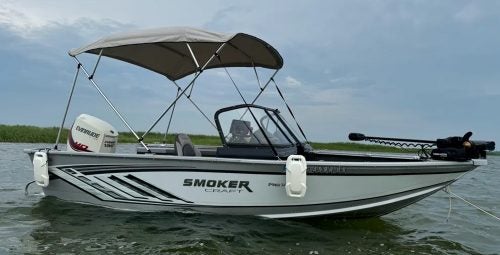 Kemimoto 4 Bow Bimini Top and Boat Bumper Review
Kemimoto 4 Bow Bimini Top and Boat Bumper Review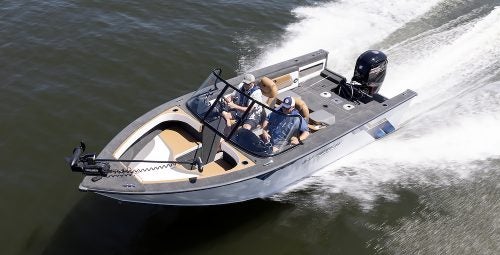 Starweld Victory 20 Review
Starweld Victory 20 Review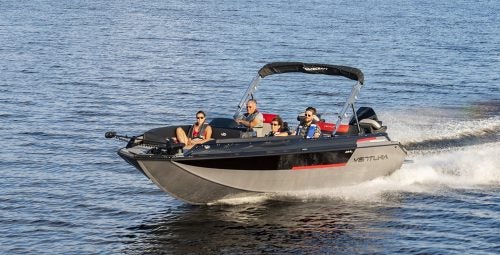 Princecraft Ventura 23 RL Review
Princecraft Ventura 23 RL Review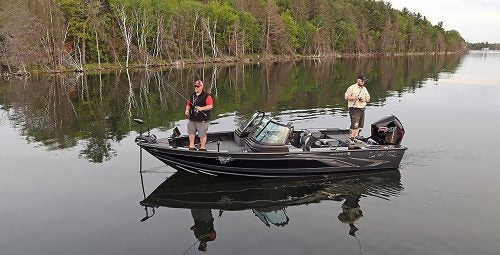 Lund 2075 Pro V Review
Lund 2075 Pro V Review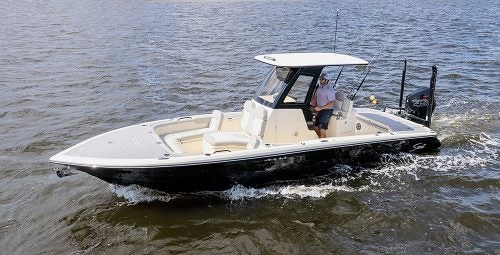 Scout 281 XSS Review
Scout 281 XSS Review Fuel Saving Tips For Boaters
Fuel Saving Tips For Boaters Best Boating Accessories
Best Boating Accessories Best Boating Apps
Best Boating Apps 5 Pontoon Boats That Are Made To Fish
5 Pontoon Boats That Are Made To Fish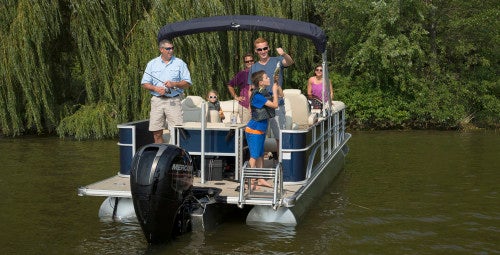 10 Great Small Pontoons
10 Great Small Pontoons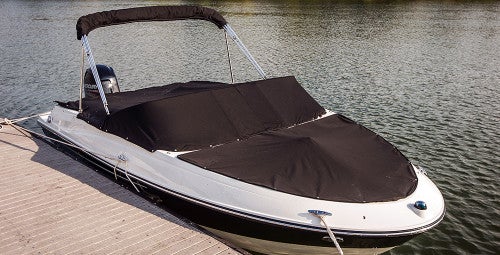 Your Boat Was Expensive—Do You Really Trust a $2 Rope From the Dollar Store to Secure It?
Your Boat Was Expensive—Do You Really Trust a $2 Rope From the Dollar Store to Secure It?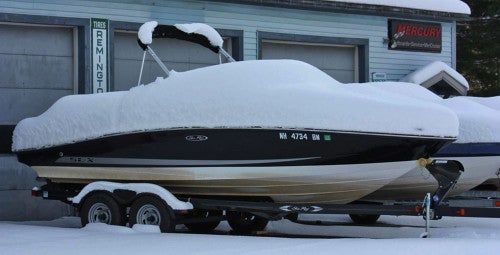 Do I Need Insurance Coverage Against Ice or Freezing Damage?
Do I Need Insurance Coverage Against Ice or Freezing Damage?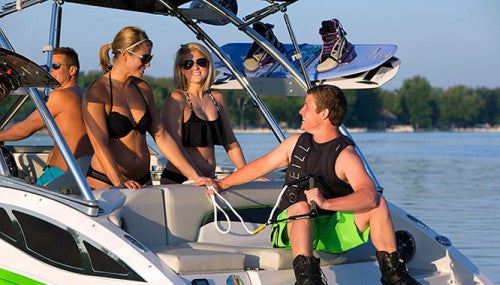 What Kind Of Insurance Coverage Do I Need?
What Kind Of Insurance Coverage Do I Need?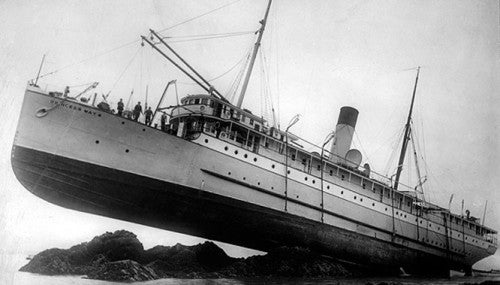 What About Salvage?
What About Salvage?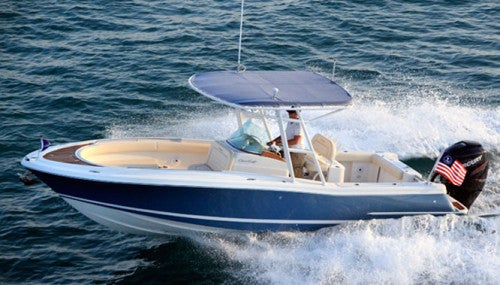 Boat Insurance or Yacht Insurance?
Boat Insurance or Yacht Insurance?
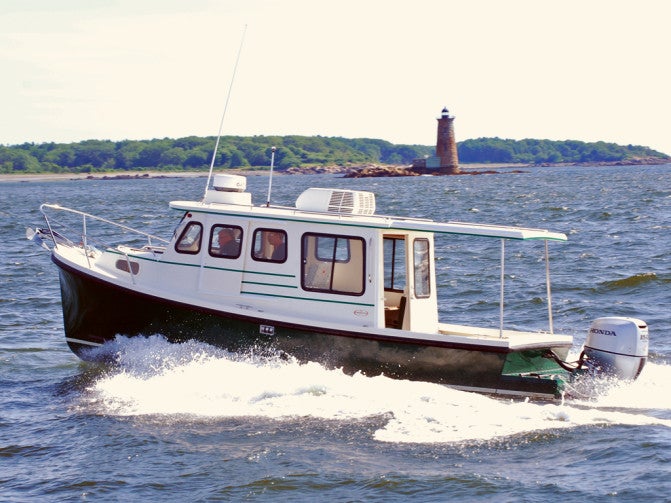

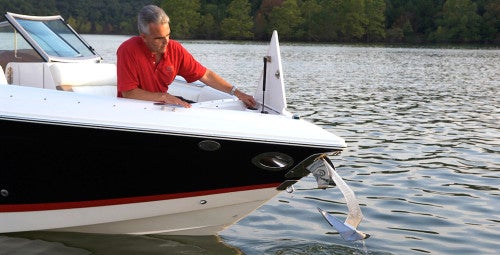
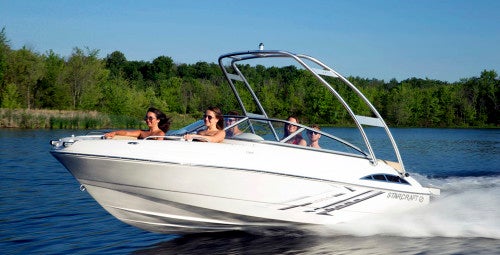
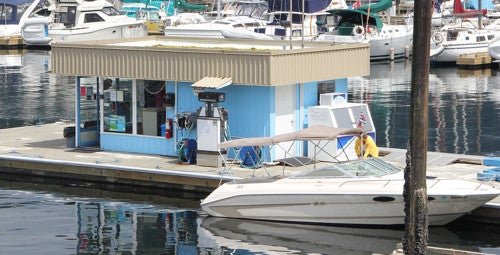
 The Best Bowriders For The Money
The Best Bowriders For The Money
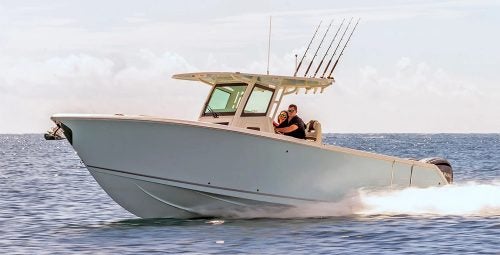 Sailfish 312CC Review
Sailfish 312CC Review
 The Wildest Concept Yachts
The Wildest Concept Yachts
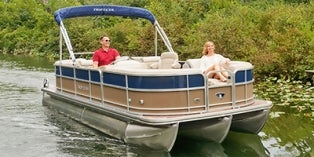 2016 Trifecta 200 Series 220FCR
2016 Trifecta 200 Series 220FCR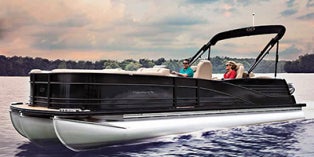 2016 Harris Grand Mariner SL 270 DL
2016 Harris Grand Mariner SL 270 DL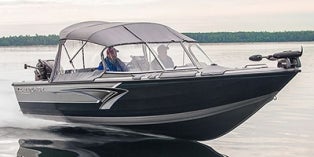 2016 Crestliner Authority 2050
2016 Crestliner Authority 2050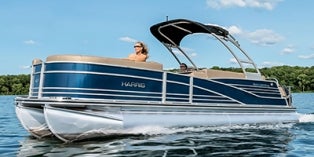 2016 Harris Grand Mariner SL 230 DLDH
2016 Harris Grand Mariner SL 230 DLDH
